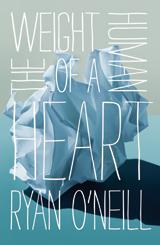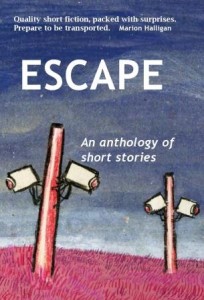 1. Who are the short fiction authors you admire (Australian or otherwise, alive or dead)?
1. Who are the short fiction authors you admire (Australian or otherwise, alive or dead)?
Of writers outside Australia, I love Jorge Luis Borges, Ernest Hemingway, Katherine Mansfield and Vladimir Nabokov. There are many Australian short story writers I love. In the 1970s Peter Carey and Murray Bail wrote some of the best short fiction ever produced in this country. Gillian Mears is another great writer who I wish wrote more stories. Of contemporary short fiction writers I admire A.S. Patric, Michael Sala and Patrick Cullen
2. What is the most memorable short story you have read? And why does it stand out for you?
There are probably two that tie for this. The first is “In the Penal Colony” by Kafka. The objective, everyday tone, contrasted with the horrific, nightmarish events in the story lingered in my mind for months after reading. The other is ‘The Cask of Amontillado” by Edgar Allen Poe. It is a brilliant first person portrait of a psychopath. I re-read this years ago and it disturbed me so much I vowed I would never read it again.
3. What do you like about the short story form?
First and foremost, the variety it offers in form, style, setting, and characterisation. There is also the possibility of perfection. A short story can be perfect in a way a novel can never be.
4. How would you describe your own writing?
Traditional and/or experimental.
5. Which of your stories are you most fond of right at this moment and why?
The story I am most fond of is “The Eunuch in the Harem” a story told through a series of book reviews. I love it because it was easy to write, because it makes people laugh (something I thought I could never do) and because it opened a door for me to get my collection published by Black Inc. Also, it’s the one story I’ve written that I can reread with some pleasure.
6. Where do the ideas for your stories come from? (Take us through an example)
Sometimes from an overheard conversation, sometimes from reading a different short story, and sometimes I just want to do something that I haven’t seen before, just to see if I could do it. For example, I’ve always wanted to find a way to put a crossword into a story, and the story* itself flowed from there…
*Ryan’s story, ‘My English Homework’, which includes a crossword and many other ESL exercises such as a family tree, is published in Escape: an anthology of short Australian stories (Spineless Wonders, 2011)
7. What is your writing process – from idea to publication? (Do you go it alone or are others involved?)
I write the first draft, (which is my least favourite part of writing) and then I revise, revise, revise. I’m extremely fortunate to have a number of friends who are writers, and so I then send the story off to them to see what they think. After another draft, I usually send it off to a journal. If I’m lucky enough to be accepted, I look at the editor’s comments and fix up any other issues. And then the story is published.
8. Do you feel the short story form is valued in Australia? What makes you say this?
I think the short story form in Australia hasn’t flourished since the 1970s. I think it endures, has endured for decades and will continue to endure. It is valued artistically, but not commercially, as can be seen by the aversion of some publishers to publishing collections. Yet there are always journals, and publishers, who are willing to take a chance on short stories, and I don’t think this will change anytime soon.
9. How do you feel about your work being published in non-print forms such as digital and audio?
I think it’s exciting, but also a little scary. For me, a book has a front cover, a back cover and a few hundred pages in between. I sometimes find it hard to accept other media.
10. What advice would you like to offer Spineless Wonders?
Don’t be afraid to experiment and take risks.

